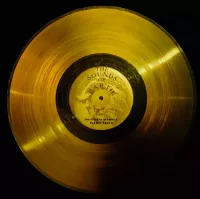The Cayman Islands are a self-governing British Overseas Territory consisting of Grand Cayman, Cayman Brac, and Little Cayman. Situated south of Cuba and northeast of Honduras, they lie between Jamaica and Mexico's Yucatán Peninsula. George Town, located on Grand Cayman, serves as the capital and is the most populous of the three islands. The territory spans 264 square kilometers (102 square miles).
1958: Self-governing territory of Jamaica
From 1958, the Cayman Islands were an internally self-governing territory of Jamaica.
1962: Separate Crown Colony
In 1962, the Cayman Islands became a separate Crown colony after Jamaica became an independent Commonwealth realm.
1962: Separation from Jamaica
In 1962, the Cayman Islands chose to separate from Jamaica and remain under British rule after Jamaica's independence from the United Kingdom.
1962: Reverted to direct British rule
In 1962, the Cayman Islands reverted to direct British rule following Jamaica's independence.
1970: International College of the Cayman Islands was established
The International College of the Cayman Islands was established in 1970.
1972: New Constitution
In 1972, a new constitution granted a large degree of internal autonomy to the Cayman Islands.
1973: Cayman Islands Olympic Committee was founded
In 1973, the Cayman Islands Olympic Committee was founded.
1976: Cayman Islands Basketball Federation joined FIBA
In 1976, the Cayman Islands Basketball Federation joined the international basketball governing body FIBA.
1976: IOC recognition
In 1976, the Cayman Islands Olympic Committee was recognised by the IOC (International Olympic Committee).
1977: Pirates Week annual festival started
In 1977, the annual 11-day Pirates Week festival was started by the Minister of Tourism Jim Bodden to boost tourism during the country's slow season.
1984: Narcotics Agreement of 1984 with the United States
In 1984, the Cayman Islands government entered into the Narcotics Agreement of 1984 with the United States to address narcotics trafficking.
1984: Establishment of the Cayman National Cultural Foundation
In 1984, the Cayman National Cultural Foundation was established to preserve and promote Cayman folk music, including the organisation of festivals such as the Cayman Islands International Storytelling Festival, the Cayman JazzFest, Seafarers Festival and Cayfest.
April 1986: First Marine Protected Areas
In April 1986, the first marine protected areas were designated in the Cayman Islands, marking them as the first islands in the Caribbean to protect their fragile marine life.
1986: Mutual Legal Assistance Treaty of 1986 with the United States
In 1986, the Cayman Islands government entered into the Mutual Legal Assistance Treaty of 1986 with the United States to address narcotics trafficking and money laundering.
1990: Forest Cover
In 1990, forest cover in the Cayman Islands was 13,130 hectares (ha).
1992: Start of Cayman 27 television
In 1992, Cayman 27 began broadcasting television in the Cayman Islands.
September 1994: USS Kittiwake was decommissioned
On September 30, 1994, the USS Kittiwake was decommissioned from the Naval Vessel Register.
1994: Further Revisions
In 1994, further revisions were made to the constitution of the Cayman Islands.
1996: Founding of the National Gallery of the Cayman Islands
In 1996, the National Gallery of the Cayman Islands (NGCI) was founded in George Town as an arts organisation seeking to fulfil its mission through exhibitions, artist residencies, education/outreach programmes and research projects. The NGCI is a non-profit institution, part of the Ministry of Health and Culture.
July 1997: CARICOM (Free Movement) Skilled Persons Act in effect
In July 1997, the CARICOM (Free Movement) Skilled Persons Act came into effect in some CARICOM countries such as Jamaica.
1997: Joined the International Cricket Council
In 1997, the Cayman Islands joined the International Cricket Council as an Affiliate member.
2000: Rise of Atheism
Since 2000, atheism has been on the rise throughout the Cayman Islands.
2000: Two major political parties: The Cayman Democratic Party (CDP) and the People's Progressive Movement (PPM)
Since 2000, there have been two official major political parties: The Cayman Democratic Party (CDP) and the People's Progressive Movement (PPM).
March 2001: Cayman Islands Cadet Corps was formed
In March 2001, the Cayman Islands Cadet Corps was formed.
2001: Modified Constitution
In 2001, the Cayman Islands' constitution was further modified.
2002: Became an Associate member of the International Cricket Council
In 2002, the Cayman Islands became an Associate member of the International Cricket Council.
2003: Immigration Law (2003 revision)
In 2003, the Immigration Law (2003 revision) was written by the United Democratic Party government.
September 2004: Hurricane Ivan
In September 2004, Grand Cayman was hit by Hurricane Ivan, resulting in extensive damage and disruption of services.
April 2005: Opening of Black Pearl Skate Park
In April 2005, Black Pearl Skate Park, spanning 52,000 square feet, was opened in Grand Cayman by Tony Hawk. At the time it was the largest skate park in the Western Hemisphere.
2007: Cayman Islands Civil Service College opened
In 2007, the Cayman Islands Civil Service College opened and is also used as a government research center.
November 2008: Ownership of USS Kittiwake was transferred to the government of the Cayman Islands
In November 2008, the ownership of the USS Kittiwake was transferred to the government of the Cayman Islands.
June 2009: Decision to sink Kittiwake
In June 2009, the Cayman Islands government decided to sink the Kittiwake to create an artificial reef.
2009: Modified Constitution
In 2009, the constitution was further modified, codifying human rights legislation.
2009: Current Constitution ordained
In 2009, the current Constitution of the Cayman Islands, incorporating a Bill of Rights, was ordained by a statutory instrument of the United Kingdom.
February 2010: Opening of first kart racing track
In February 2010, the first purpose-built track for kart racing was opened in the Cayman Islands. Corporate karting leagues saw significant participation with 20 local companies and 227 drivers involved in the 2010 Summer Corporate Karting League.
2010: Census Comparison
Compared to the 2010 census, the 2021 census revealed a population growth of 36% in persons over age 65 in the Cayman Islands.
2010: Religion
In 2010, over 80% of the population identified as Christian in Cayman Islands.
January 2011: USS Kittiwake was scuttled
On January 5, 2011, the USS Kittiwake was scuttled off Seven Mile Beach to form an artificial reef.
2011: National team attended the Caribbean Basketball Championship for the first time
In 2011, the Cayman Islands' national team attended the Caribbean Basketball Championship for the first time.
December 2012: Women's World Championships
In December 2012, the former Cayman Open will be replaced by the Women's World Championships, the largest tournament in the world.
2014: Unemployment rate of 4.7%
In 2014, the Cayman Islands had an unemployment rate of 4.7%.
December 2015: Vessels registered in the Cayman Islands totalling 4.3 million GT
As of December 31, 2015, the Cayman Islands had 360 commercial vessels and 1,674 pleasure craft registered, totaling 4.3 million GT.
2015: Forest Ownership
In 2015, 0% of the forest area in the Cayman Islands was reported to be under public ownership, 12% under private ownership, and 88% under other or unknown ownership.
2015: Low unemployment rate of about 4.24%
In 2015, the Cayman Islands recorded a relatively low unemployment rate of approximately 4.24%.
2016: Tax Scam Allegations
In 2016, then US president Barack Obama described a particular building in the Cayman Islands as a "tax scam".
May 2017: General Election
As of the May 2017 General Election, members of the PPM and CDP joined with three independent members to form a government coalition.
2017: Gold Medal victory in 2017 Natwest Island Games
Cayman Islands National Male National Team has won Gold Medal victory in 2017 Natwest Island Games.
2018: Real GDP per capita is the tenth highest in the world
According to the CIA World Factbook in 2018, the Cayman Islands' real GDP per capita was the tenth highest in the world.
2018: Pledge to form a coast guard
In 2018, the PPM-led Coalition government pledged to form a coast guard. Also in mid-2018, Commander Robert Scotland was appointed as the first commanding officer and Lieutenant Commander Leo Anglin was appointed as Second-in-Command of the Cayman Islands Coast Guard.
October 2019: Formation of the Cayman Islands Regiment
On 12 October 2019, the government announced the formation of the Cayman Islands Regiment, a new British Armed Forces unit.
November 2019: Cayman Islands Coast Guard would become operational in January 2020
In late November 2019, it was announced that the Cayman Islands Coast Guard would become operational in January 2020.
December 2019: Recruitment for commanding officers and junior officers began
In mid-December 2019, recruitment for commanding officers and junior officers began for the Cayman Islands Regiment.
2019: Gold Medal victory in 2019 Natwest Island Games
Cayman Islands National Male National Team has won Gold Medal victory in 2019 Natwest Island Games.
2019: End of Cayman 27 television
In 2019, Cayman 27 stopped broadcasting television in the Cayman Islands.
2019: Cayman Islands Coast Guard deployed for international joint operations
In mid-2019, the commander and second-in-command took part in international joint operations with the United States Coast Guard and the Jamaica Defense Force Coast Guard called Operation Riptide.
January 2020: Commanding officers began work
In January 2020, commanding officers were expected to begin work for the Cayman Islands Regiment.
January 2020: Cayman Islands Coast Guard become operational
In January 2020, the Cayman Islands Coast Guard became operational.
January 2020: First officers chosen for the Cayman Islands Regiment
In January 2020, the first officers were chosen for the Cayman Islands Regiment.
February 2020: McKeeva Bush received a two-month suspended jail sentence
In February 2020, before the 2021 Caymanian general election, leader of the CDP McKeeva Bush received a two-month suspended jail sentence for assaulting a woman.
February 2020: Junior officers expected to begin
In February 2020, junior officers were expected to begin work for the Cayman Islands Regiment.
2020: Forest Cover
In 2020, forest cover in the Cayman Islands was around 53% of the total land area, which is equivalent to 12,720 hectares (ha).
2020: Cayman Islands Regiment became fully operational
In 2020, the Cayman Islands Regiment became fully operational, with an initial 35–50 personnel of mostly reservists.
February 2021: Minimum wage is $6 KYD for standard positions
As of February 2021, the minimum wage in the Cayman Islands was $6 KYD for standard positions and $4.50 for workers in the service industry.
October 2021: Census Results
According to the Economics and Statistics Office of the Government of the Cayman Islands, the Cayman Islands had a population of 71,432 at the Census of October 2021, with 56% of the workforce being Non-Caymanian.
October 2021: Cayman Islands Coast Guard Act passed
On 5 October 2021, the Cayman Islands Parliament passed the Cayman Islands Coast Guard Act, establishing the Cayman Islands Coast Guard as a uniformed and disciplined department of Government.
2021: Population of 69,656
As of 2021, the Cayman Islands had a population of 69,656.
2021: Cayman Islands Regiment grew to over a hundred personnel
Between 2020 and 2021, the Cayman Islands Regiment grew to over a hundred personnel.
2021: Religion
In 2021, Christianity was the predominant religion on the Cayman Islands, with 67% of the population identifying as Christian.
2021: Caymanian general election
In 2021, the Caymanian general election took place.
2021: Census Results
The 2021 census showed that 36% of Cayman's population growth has been in persons over age 65, while only 8% growth was recorded in groups under age 15.
December 2022: Population Estimate
As of December 2022, the population of the Cayman Islands was estimated by the Economics and Statistics Office to have risen to 81,546.
December 2022: Jordan Crooks wins gold at World Swimming Championships
In December 2022, Jordan Crooks became the first Caymanian athlete to win a gold medal at any sport's world championship. He achieved this feat by winning the 50 m freestyle event at the 2022 FINA World Swimming Championships (25 m).
2022: Population Report
According to a late 2022 population report by the Economics and Statistics Office, the estimated population at the end of 2022 was 81,546.
2023: Highest Standard of Living
In 2023, the Cayman Islands had a GDP per capita of US$97,750, marking it with the highest standard of living in the Caribbean and among the highest globally.
July 2024: HMS Trent deployed to the islands
In July 2024, the patrol vessel HMS Trent deployed to the islands to provide assistance in the aftermath of Hurricane Beryl.
2024: Jordan Crooks sets world record
During the 2024 World Aquatics Swimming Championships (25 m), Jordan Crooks set a new world record in the 50 m freestyle event with a time of 19.90, becoming the first swimmer to break the 20-second barrier.
2030: Projected Population
It is believed that given current trends, the population of the Cayman Islands will reach 100,000 before 2030.
Mentioned in this timeline

Basketball is a team sport played on a rectangular court...

Barack Obama the th U S President - was the...
The United States of America is a federal republic located...

Tony Hawk nicknamed Birdman is a pioneering American professional skateboarder...
Jamaica is an island country located in the Caribbean south...

Music is a cultural universal involving the arrangement of sound...
Trending

15 minutes ago Cavaliers defeat Hornets 118-113: Game recap and key takeaways from the match.
15 minutes ago Vaccination Requirements and Measles Prevention in Cabo San Lucas and La Paz
16 minutes ago Cason Wallace Secures Four Steals in Thunder's Victory: A Promising NBA Performance.
1 day ago Roman Anthony expected as Red Sox leadoff hitter in 2026, lineup prediction

16 minutes ago Isaiah Hartenstein showcases passing skills, removed from injury report, fills stat sheet.
16 minutes ago Sadie Sink and Noah Jupe Star in Romeo & Juliet West End Production.
Popular

Jesse Jackson is an American civil rights activist politician and...

Barack Obama the th U S President - was the...

Bernie Sanders is a prominent American politician currently serving as...

Michael Joseph Jackson the King of Pop was a highly...

Ken Paxton is an American politician and lawyer serving as...
WWE Raw a professional wrestling television program by WWE airs...